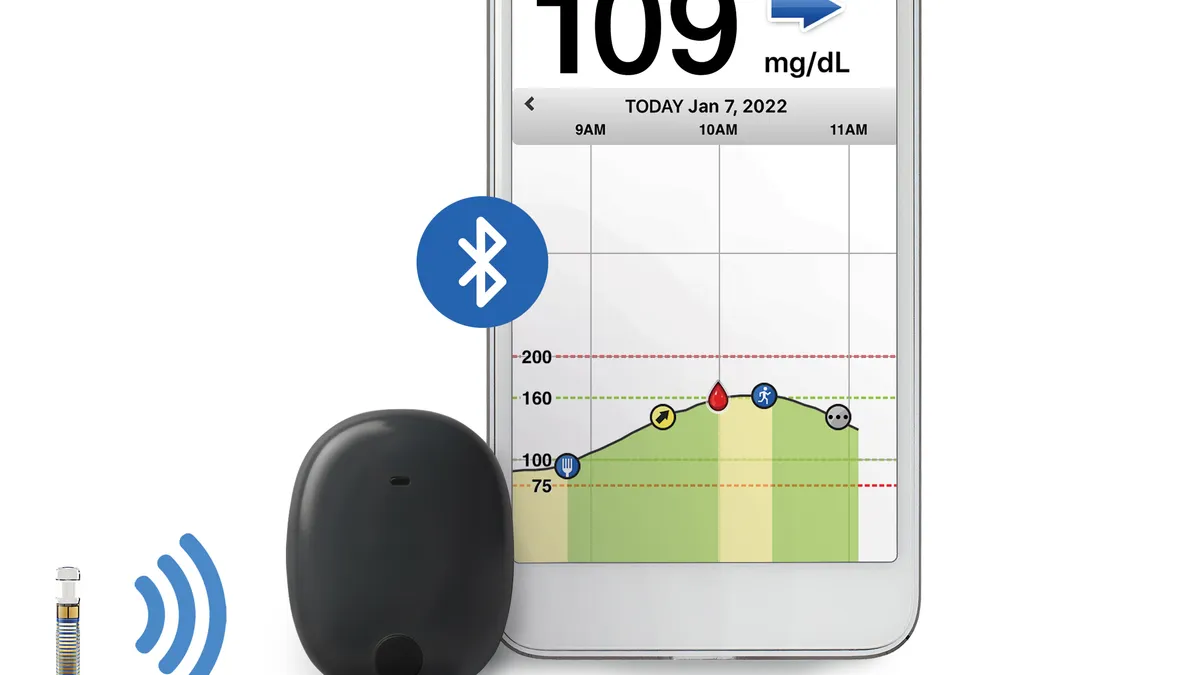Dive Brief:
- Medicare will start covering Senseonics’ implantable continuous glucose monitor (CGM) for a broader group of patients in late February.
- Three Medicare Administrative Contractors (MACs) — Noridian, Palmetto and National Government Services — finalized local coverage determinations that would cover the devices for people who only take basal insulin, or who don’t take insulin but have a history of hypoglycemia. Previously, they would only cover the CGM for people who took multiple shots of insulin per day.
- Senseonics’ Eversense E3 CGM is implanted under the skin, and it lasts for up to six months. Ascensia is the exclusive global distributor for the device.
Dive Insight:
Last year, Medicare updated its policy to cover CGMs for people who take basal insulin or who have a history of hypoglycemia. The MACs, who oversee claims across U.S. regions, have decided to provide the same coverage for implantable versions of the devices.
Currently, Senseonics is the only company with a Food and Drug Administration-approved implantable CGM. The company touts that its customers don’t need to regularly insert a CGM and reorder supplies.
“It is important that people with diabetes have the same access to the benefits of a fully implantable, long-term CGM, as they do to traditional CGMs [that have a much shorter lifespan], and so we are thrilled to see this expansion.” Rudy Thoms, Ascensia’s vice president of CGM Commercial U.S., said in a statement.
Senseonics expects the first of the local coverage determinations to go into effect on Feb. 25.
National Government Services, a Medicare contractor based in Indiana and a subsidiary of Anthem, said its revisions will take effect on April 1.
Evidence suggests little difference in diagnostic accuracy, patient-reported outcomes and adverse events between implantable CGMs and subcutaneous CGMs, according to National Government Services’ local coverage determination. Although there was no direct evidence assessing the use of implantable CGMs for patients who don’t take insulin and have hypoglycemia, “there is still adequate evidence to infer equivalence with subcutaneous CGM systems,” the contractor wrote.
Sensonics CEO Tim Goodnow said during the company’s third-quarter earnings call that most of the MACs had published updated local coverage determinations that include basal-only coverage, and the company expects the remaining ones to follow soon.
“The majority of our patients are Type 2, and we expect this to increase with the basal-only coverage,” Goodnow said.
Senseonics brought in $14.36 million in revenue in the nine months ending September 30. The company recently completed a pivotal trial for a 365-day version of its sensor.











